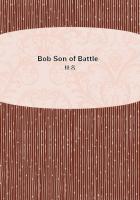'I am aware of nothing about the property, and can say nothing about it except this, that it has not been, and will not be inquired after by me in this matter. If I marry Frank Gresham, it will not be for the property. I am sorry to make such an apparent boast, but you force me to do it.'
'On what then are you to live? You are too old for love in a cottage, I suppose?'
'Not at all too old; Frank, you know is "still quite a boy".'
Impudent hussy! forward, ill-conditioned saucy minx! such were the epithets which rose to Lady Arabella's mind; but she politely suppressed them.
'Miss Thorne, this subject is of course to me very serious; very ill-adapted for jesting. I look upon such a marriage as absolutely impossible.'
'I do not know what you mean by impossible, Lady Arabella.'
'I mean, in the first place, that you two could not get yourselves married.'
'Oh, yes; Mr Oriel would manage that for us. We are his parishioners, and he would be bound to do it.'
'I beg your pardon; I believe that under all the circumstances it would be illegal.'
Mary smiled; but she said nothing. 'You may laugh, Miss Thorne, but I think you will find that I am right. There are still laws to prevent such fearful distress as would be brought about by such a marriage.'
'I hope that nothing I shall do will bring distress on the family.'
'Ah, but it would; don't you know that it would? Think of it, Miss Thorne. Think of Frank's state, and of his father's state. You know enough of that, I am sure, to be well aware that Frank is not in a condition to marry without money. Think of the position which Mr Gresham's only son should hold in the county; think of the old name, and the pride we have in it; you have lived among us enough to understand all this; think of these things, and then say whether it is possible that such a marriage should take place without family distress of the deepest kind. Think of Mr Gresham; if you truly love my son, you could not wish to bring on him all this misery and ruin.'
Mary now was touched, for there was truth in what Lady Arabella said.
But she had no power of going back; her troth was plighted, and nothing any human being could say should take her from it. If he, indeed, chose to repent, that would be another thing.
'Lady Arabella,' she said, 'I have nothing to say in favour of this engagement, except that he wishes it.'
'And is this a reason, Mary?'
'To me it is; not only a reason, but a law. I have given him my promise.'
'And you will keep your promise even to his own ruin?'
'I hope not. Our engagement, unless he shall choose to break it off, must necessarily be a long one; but the time will come--'
'What! when Mr Gresham is dead?'
'Before that, I hope.'
'There is no probability of it. And because he is headstrong, you, who have always had credit for so much sense, will hold him to this mad engagement?'
'No, Lady Arabella; I will not hold him to anything to which he does not wish to be held. Nothing that you can say shall move me: nothing that anybody can say shall induce me to break my promise to him. But a word from himself will do it. One look will be sufficient. Let him give me to understand, in any way, that his love for me is injurious to him--that he has learnt to think so--and then I will renounce my part in this engagement as quickly as you could wish it.'
There was much in this promise, but still not so much as Lady Arabella wished to get. Mary, she knew, was obstinate, yet reasonable; Frank, she thought, was both obstinate and unreasonable. It might be possible to work on Mary's reason, but quite impossible to touch Frank's irrationality. So she persevered--foolishly.
'Miss Thorne--that, is, Mary, for I still wish to be thought your friend--'
'I will tell you the truth, Lady Arabella: for some considerable time past I have not thought you so.'
'Then you have wronged me. But I will go on with what I was saying. You quite acknowledge that this is a foolish affair?'
'I acknowledge no such thing.'
'Something very much like it. You have not a word to say in its defence.'
'Not to you: I do not choose to be put on my defence by you.'
'I don't know who has more right; however, you promise that if Frank wishes it, you will release him from his engagement.'
'Release him! It is for him to release me, that is, if he wishes it.'
'Very well; at any rate, you give him permission to do so. But will it not be more honourable for you to begin?'
'No; I think not.'
'Ah, but it would. If he, in his position, should be the first to speak, the first to suggest that this affair between you is a foolish one, what would people say?'
'They would say the truth.'
'And what would you yourself say?'
'Nothing.'
'What would he think himself?'
'Ah, that I do not know. It is according as that may be, that he will or will not act at your bidding.'
'Exactly; and because you know him to be high-minded, because you think that he, having so much to give, will not break his word to you--to you who have nothing to give in return--it is, therefore, that you say that the first step must be taken by him. It that noble?'
Then Mary rose from her seat, for it was no longer possible for her to speak what it was in her to say, sitting there leisurely on her sofa.
Lady Arabella's worship of money had not hitherto been so brought forward in the conversation as to give her unpardonable offence; but now she felt that she could no longer restrain her indignation. 'To you who have nothing to give in return!' Had she not given all that she possessed? Had she not emptied his store into her lap? that heart of hers, beating with such genuine life, capable of such perfect love, throbbing with so grand a pride; had she not given that? And was it not that, between him and her, more than twenty Greshamsburys, nobler than any pedigree? 'To you who have nothing to give,' indeed! This to her who was so ready to give everything!















